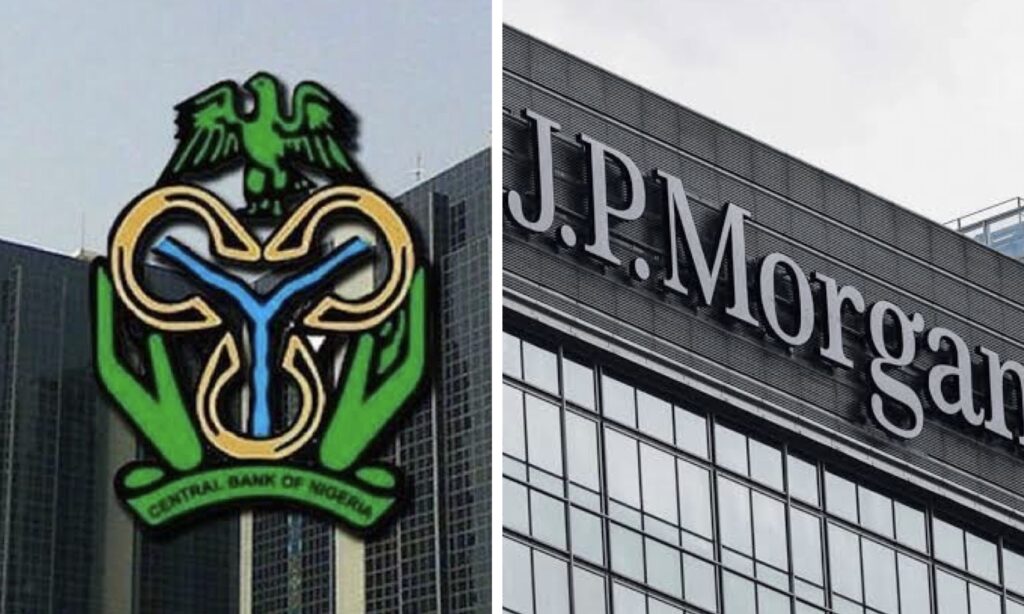Nigeria stands to lose up to $21 million in foreign assets held by the multinational financial giant JP Morgan.
This is due to the notice that was filed to withdraw the aforementioned amount from Nigeria’s account with the UK judgment debt. The notice was sent in response to the rejection of Nigeria’s appeal against the judgment of a British Court that allowed the assets to be seized from Nigeria’s JP Morgan account in order to offset the judgment that was entered against Nigeria approximately five years ago.
Meanwhile, the withdrawal is presently being contested on procedural grounds by the law firm of Brown Gavalas & Fromm LLP and other attorneys employed by President Bola Tinubu’s administration.
It was discovered that all parties had finished their papers in advance of the court’s ruling, which may come at any moment.
Remember that after a commercial agreement collapsed, a British-Nigerian citizen named Emovbira Williams brought the federal government before a UK court, alleging that she had experienced abuse and fraud at the hands of Nigerian officials, the State Security Service (SSS).
In a decision dated November 9, 2018, the court, chaired by Justice Mary Clare Moulder, found in favor of Williams and mandated that Nigeria give him the $6.5 million that had collected a 9 percent interest over the previous five years.
A British court ruled on December 19, 2018, in Nigeria’s appeal against the judgment debt, concluding that the petition lacked merit and was incompetent.
Following its dismissal, Justice Robert Bright confirmed the decision of Justice Mary Clare Moulder, who had earlier given the plaintiff/applicant permission to withdraw $21 million and around £20,000 from Nigeria’s central bank account with JP Morgan.
Nigeria’s claim of immunity as justification to set aside the judgment debt was criticized by Bright as being feeble.
Nigeria’s problems began in the late 1980s when the plaintiff’s business venture went awry and led to his imprisonment.
Williams said that, at the behest of the Nigerian government, he had guaranteed the payment of $6.5 million in 1986 for the shipment of food to Nigeria from England into the account of a UK trustee.
He said that the agreement soured because FG declined to pay him back, breaking one of the terms of the agreement.
The plaintiff said that in 1986, after traveling to Nigeria, he was detained, tried for economic sabotage by a military tribunal, and given a 10-year prison sentence.
However, three years after receiving his term, in 1989, he broke out of a Nigerian prison and went to London.
The plaintiff further revealed that in August 1993, Ibrahim Babangida, the military Head of State at the time, granted him a presidential pardon, clearing him of all accusations and directing that he receive full payment for the cash.
Nevertheless, it was reported that the Central Bank of Nigeria (CBN) had delayed the money’s delivery for a number of years, even after the country’s 1999 transition to democracy.
Nigeria was forced to pay after a lawsuit was brought against it at the Queen’s Bench Division of the High Court of Justice. The judge there ruled that he had to take the money out of Nigeria’s savings account with JP Morgan in the US.
In response, Nigeria, acting through the CBN, challenged the decision, arguing that Nigeria was an independent nation and was not bound by the decisions of other countries.
But in a decision last month, the judge rejected Nigeria’s claim of immunity, saying it was too weak to stand and that Williams’ business arrangement with the Nigerian government involved money being sent to a UK-citizen trustee in a UK bank.

